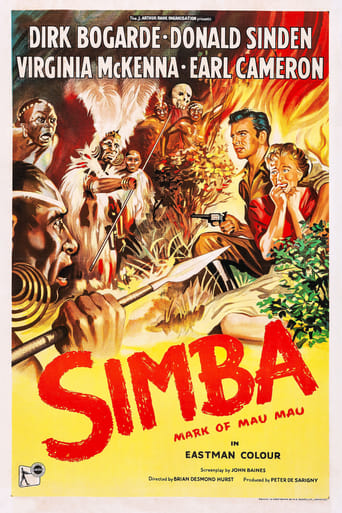michael_a_manor
I don't intend to review the film in its entirety, but rather discuss its treatment of race relations. There is little doubt that it was transgressive by the standards of its time, and, also, it was incredibly raw and often offensive in terms of rank racism, but it was also refreshingly honest and unvarnished. We saw the ugliness for what it was on all sides. We saw the complication. We saw how truly decent people could hold a variety of view and then change them for the better. Most importantly,we saw humanity. I don't think we can achieve that by sanitizing and political correctness. I am grateful that this film is available for viewing and consideration. Just the notion of an accomplished black doctor standing up to a white man in such an astonishing way circa 1955 was amazing. We didn't see anything like it until Sydney Poitier uttered his famous line, "They call me Mr. Tibbs."
ptaylaw
Some of the reviews of this movie are too absorbed with the alleged racial content. Although racism was prevalent in the white community, a better approach would be to recognize the white settlers' concern for their safety from murder and home invasion. Some people don't know much about the history of the period, and are too preoccupied with being politically correct by today's standards. The Mau Mau rebellion was an early example of terrorism through brutality and atrocity. Many Kenyans lived in fear of a Mau Mau raid and more than 2,000 were killed by Mau Mau. The blood oaths and secret society of the Mau Mau made the terror all the more extreme. Although few of those murdered were white, many settlers were extremely scared. They were particularly scared at night, and of being betrayed by their household employees. Simba accurately depicts the fear and tension of the period. There are fine performances and the movie is absorbing and exciting.
dbdumonteil
This movie may be accused of racism.Perhaps so.But you could also blame "stagecoach" and a lot of westerns before "broken arrow" as well :the Indians were the villains,just as the natives are here.Let's be serious!It was half a century ago and at the time the writers had not the hindsight we have today.The precedent user saw the movie through the eyes of the 2004 audience obviously the politically correct one.Judging by the rating,there are users who disagree and I'm one of them.First of all,"Simba" is not poorly executed,it has a good screenplay,fine actors (Bogarde and Virginia McKenna),beautiful landscapes...That the Africans should be shown as primitive,cruel and mindless does not prevent some of them from becoming educated and wise:"I studied for six years ,the black doctor says,to save lives ,not to destroy them".Two years later in "something of value" ,Richard Brooks showed a native afraid of thunder!"Simba" is the British forerunner of Richard Brook's work.In "Simba" anyway ,the White are not necessarily the heroes.See how Bogarde refuses to shake hands with the doctor.And the last picture of the movie is a black child's face ,a curious choice for a would be racist flick.
David Atfield
Set in Kenya in the 1950's, this film attempts to portray the conflict between black and white in an even-handed way. But it can't help making the whites the victims and the blacks the villains. One token good black man (a doctor) is hardly sufficient to make up for the superstitious and blood-thirsty mobs that ransack the country killing viciously and without mercy. This film is even more reprehensible given the dreadful events now occurring in Zimbabwe where white farmers are being murdered by black squatters. I'm sure a black African audience would find this film further motivation to hate the arrogant whites. How can we sympathise with a man who insists that the blacks are "children mentally" and with our hero and heroine who insist on calling their native workers "boy"? I've no doubt that the film-makers were sincere in trying to promote a message of peace - but this peace is portrayed as achievable only on the white man's terms.To make things worse the film is poorly made, with clumsy editing from stand-ins for the stars wandering around African locations to close-ups of the real stars with badly rear-projected locations. This constant shuffling becomes so silly that it destroys any chance the film had at credibility. By 1955 we really expect the cast to be on location. This is one dinosaur of a film that should be laid to rest. I'm sure the great Dirk Bogarde was bitterly ashamed of it in later life.


